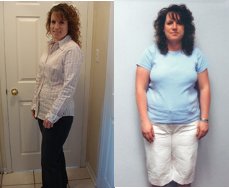By Isagenix Nutritional Sciences

The world of nutrition has been waiting anxiously for the new 2010 Dietary Guidelines for Americans to finally be released—that happened today. This document comes out every five years as a joint effort with the U.S. Department of Agriculture and U.S. Department of Health and Human Services. It is based on the findings from the Advisory Committee made up of nutrition and health experts who analyze the latest research findings on diet and health.
The ultimate purpose of these guidelines is to educate Americans by giving more practical information so they can improve eating habits and increase physical activity to ultimately improve the health of all Americans ages two and older.
What’s really new in these dietary guidelines (112 pages) is a focus on reducing obesity with recommendations to eat less—by consuming smaller portions of food and beverages. This advice make sense in this world now dominated by the prevalence of overweight and obese individuals. Nutrient-dense foods and fewer calories are key. It’s a message that Isagenix has been stating for eight years.
In a nutshell, here’s what the Guidelines are saying:
- Watch calories to achieve and maintain a healthy weight.
- More calories from nutrition-rich foods, fewer calories from SoFAS (solid fats, added sugars) and refined grains.
- Eat a nutrient-dense breakfast. Who doesn’t already know that our IsaLean Shakes are the easiest way to get high-biologically available (easy to digest and absorb) nutrient-dense meal in two easy scoops? The high protein adds satiety so you eat less at the next meal; whey is a protein source with naturally higher in branched-chain amino acids to keep protein synthesis stimulated. The shakes also have the vitamins and minerals you need; plus, it has the healthy polyunsaturated fats that are recommended along with dietary fiber, too.
More and Less
The Guidelines can be further summarized by what we need more and less of in our diets:
More: Eat more seafood, lean proteins, fruits and vegetables, low-fat dairy (IsaLean Shake fits in here), healthy oils, whole grains and dietary fiber (SlimCakes fits in here)! According to the guidelines, the nutrients that are low in our diets include: calcium, vitamin D, B-12 and potassium; however, we know that when people diet they risk having insufficient amounts of other nutrients too (you can get what you need with Essentials for Men/Women). Also, to really fight obesity and overweight, we simply have to increase our activity! Recommended physical activity: any is better than none, but try to get 150 minutes (2.5 hours) a week of moderate intense exercise—if you do vigorous intensity exercising, then 1.25 hours per week is all you need for substantial health benefits. This is doable!
Eat less sodium (mainly from processed foods), saturated and trans fats, fast food, added sugars and refined grains. Watch out for the calories in beverages. American adults are consuming 400 calories a day in their beverages—mostly form soda and energy/sports drinks (use 35-calorie Want More Energy? instead). Five hundred extra calories a day will lead to a pound of fat in one week if energy expenditure isn’t accounted for. The easiest way to reduce sodium and fat is to not eat fast food and don’t drink calories. Consume more home-prepared, fresh foods and drink water, milk or beverages that don’t contain lots of sugar. If you are following an Isagenix program, you will be easily reducing sodium, sugars and solid fats. Throw in a serving of FiberPro and SlimCakes along with your shake and you will have just eaten almost half of the total recommended dietary fiber needs!
The Dietary Guidelines comes at a time where the public needs direction and guidance on how to eat better and how to get moving to reduce the risk of chronic diseases. Where the overall message hasn’t changed much in the last 15 years, the clearer message and detailed easy-to-read tables are, in fact, a huge improvement to previous Guidelines. Look to Isagenix as a way to help you meet them, exceed them, and gain more out of life with better health.
Dr. Rockway is Isagenix’s Director of Research and Science and has more than 25 years of experience in teaching, academic research and directing research in the dietary supplement industry. After receiving a B.S. in Biology at San Diego State University, she went to University of Arizona for her M.S. in Agricultural and Nutritional Biochemistry,










